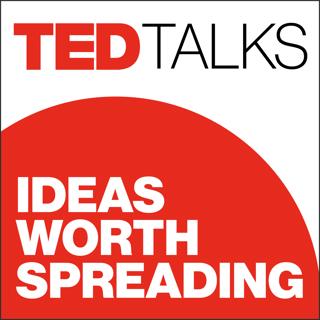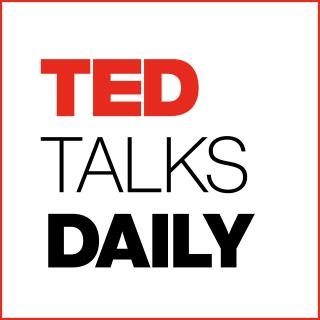
The agony of opioid withdrawal -- and what doctors should tell patients about it | Travis Rieder
The United States accounts for five percent of the world's population but consumes almost 70 percent of the total global opioid supply, creating an epidemic that has resulted in tens of thousands of deaths each year. How did we get here, and what can we do about it? In this personal talk, Travis Rieder recounts the painful, often-hidden struggle of opioid withdrawal and reveals how doctors who are quick to prescribe (and overprescribe) opioids aren't equipped with the tools to eventually get people off the meds. Hosted on Acast. See acast.com/privacy for more information.
28 Jun 201814min

Bridges should be beautiful | Ian Firth
Bridges need to be functional, safe and durable, but they should also be elegant and beautiful, says structural engineer Ian Firth. In this mesmerizing tour of bridges old and new, Firth explores the potential for innovation and variety in this essential structure -- and how spectacular ones reveal our connectivity, unleash our creativity and hint at our identity. Hosted on Acast. See acast.com/privacy for more information.
27 Jun 201814min

The symbols of systemic racism -- and how to take away their power | Paul Rucker
Multidisciplinary artist and TED Fellow Paul Rucker is unstitching the legacy of systemic racism in the United States. A collector of artifacts connected to the history of slavery -- from branding irons and shackles to postcards depicting lynchings -- Rucker couldn't find an undamaged Ku Klux Klan robe for his collection, so he began making his own. The result: striking garments in non-traditional fabrics like kente cloth, camouflage and silk that confront the normalization of systemic racism in the US. "If we as a people collectively look at these objects and realize that they are part of our history, we can find a way to where they have no more power over us," Rucker says. (This talk contains graphic images.) Hosted on Acast. See acast.com/privacy for more information.
26 Jun 20186min

What if we eliminated one of the world's oldest diseases? | Caroline Harper
Thousands of years ago, ancient Nubians drew pictures on tomb walls of a terrible disease that turns the eyelids inside out and causes blindness. This disease, trachoma, is still a scourge in many parts of the world today -- but it's also completely preventable, says Caroline Harper. Armed with data from a global mapping project, Harper's organization Sightsavers has a plan: to focus on countries where funding gaps stand in the way of eliminating the disease and ramp up efforts where the need is most severe. Learn more about their goal of consigning trachoma to the history books -- and how you can help. (This ambitious plan is one of the first ideas of The Audacious Project, TED's new initiative to inspire global change.) Hosted on Acast. See acast.com/privacy for more information.
26 Jun 201810min

How we can design timeless cities for our collective future | Vishaan Chakrabarti
There's a creeping sameness in many of our newest urban buildings and streetscapes, says architect Vishaan Chakrabarti. And this physical homogeneity -- the result of regulations, mass production, safety issues and cost considerations, among other factors -- has blanketed our planet in a social and psychological homogeneity, too. In this visionary talk, Chakrabarti calls for a return to designing magnetic, lyrical cities that embody their local cultures and adapt to the needs of our changing world and climate. Hosted on Acast. See acast.com/privacy for more information.
25 Jun 201813min

Why you should love gross science | Anna Rothschild
What can we learn from the slimy, smelly side of life? In this playful talk, science journalist Anna Rothschild shows us the hidden wisdom of "gross stuff" and explains why avoiding the creepy underbelly of nature, medicine and technology closes us off to important sources of knowledge about our health and the world. "When we explore the gross side of life, we find insights that we never would have thought we'd find, and we even often reveal beauty that we didn't think was there," Rothschild says. Hosted on Acast. See acast.com/privacy for more information.
22 Jun 201813min

The nightmare videos of childrens' YouTube -- and what's wrong with the internet today | James Bridle
Writer and artist James Bridle uncovers a dark, strange corner of the internet, where unknown people or groups on YouTube hack the brains of young children in return for advertising revenue. From "surprise egg" reveals and the "Finger Family Song" to algorithmically created mashups of familiar cartoon characters in violent situations, these videos exploit and terrify young minds -- and they tell us something about where our increasingly data-driven world is headed. "We need to stop thinking about technology as a solution to all of our problems, but think of it as a guide to what those problems actually are, so we can start thinking about them properly and start to address them," Bridle says. Hosted on Acast. See acast.com/privacy for more information.
22 Jun 201816min

How Netflix changed entertainment -- and where it's headed | Reed Hastings
Netflix changed the world of entertainment -- first with DVD-by-mail, then with streaming media and then again with sensational original shows like "Orange Is the New Black" and "Stranger Things" -- but not without taking its fair share of risks. In conversation with TED curator Chris Anderson, Netflix co-founder and CEO Reed Hastings discusses the company's bold internal culture, the powerful algorithm that fuels their recommendations, the $8 billion worth of original content they're planning to produce this coming year and his philanthropic pursuits supporting innovative education, among much more. Hosted on Acast. See acast.com/privacy for more information.
21 Jun 201820min






















